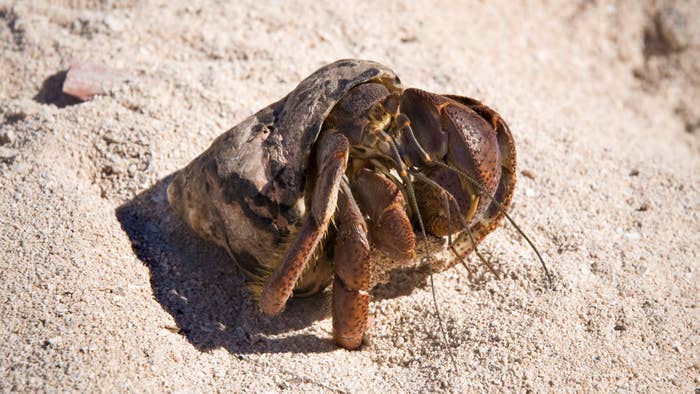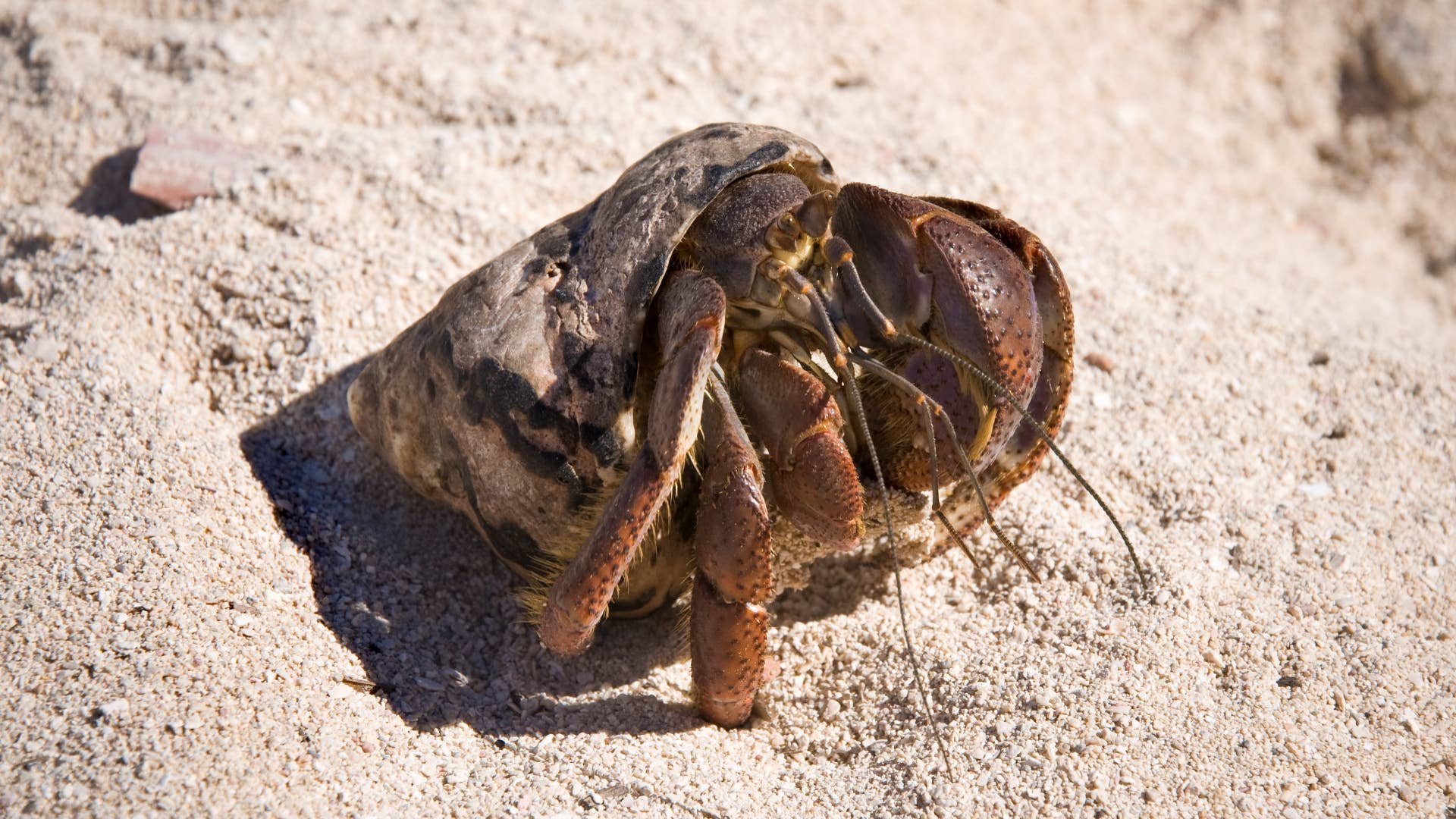
Researchers at the University of Hull in England have determined that a plastic additive found in certain ocean pollution can elicit a response from hermit crabs that is comparable to sexual attraction.
The study, which was conducted along the Yorkshire coast, shows that oleamide, a noted pheromone for particular ocean species, such as shrimp, causes the respiration rate of hermit crabs to increase, an indication that the crustacean is feeling “excitement and attraction.” An odd circumstance for hermit crabs which have been known to travel great distances in search of food, only to mistake it for plastics containing oleamide.
“Our study shows that oleamide attracts hermit crabs. Respiration rate increases significantly in response to low concentrations of oleamide, and hermit crabs show a behavioural attraction comparable to their response to a feeding stimulant,” Paula Schirrmacher, doctoral candidate and member of the University of Hull research team, said.
“This research demonstrates that additive leaching may play a significant role in the attraction of marine life to plastic,” Schirrmacher continued.
The light-hearted story of hermit crabs being sexually attracted to the oleamide found in ocean pollution points to an increasingly worrisome issue that impacts everyone across the globe and shows no signs of slowing down. The World Wildlife Fund warns that at our current rate, there could be more plastic in the sea than fish by 2050, unless our world leaders come together to address this problem.
The WWF reports eight million tons of plastic is dumped into our oceans every year, which not only affects marine life, but also destroys entire bodies of water.

